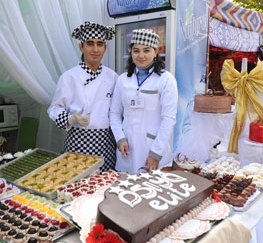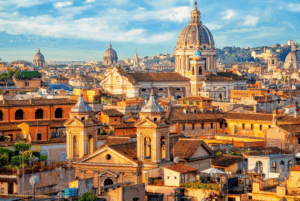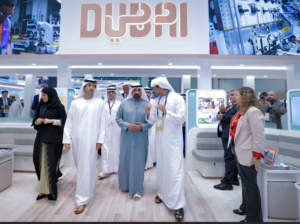Tashkent Tourism Festival

By Agha Iqrar Haroon
TASHKENT, Uzbekistan – The Tashkent Tourism Festival started on Oct.31 with its full colors and exotic ambiance. The event is well attended by international tourism and travel writers, tour operators, and national tourism organizations.
Organizations from Malaysia, Indonesia, Thailand, Poland, Russia, India, Iran, Turkmenistan, Kazakhstan, Kyrgyzstan, Turkey, and China have an imposing presence while other important countries from the Far East, Southeast Asia, South Asia, Central Asia, and Eastern Europe are present at the festival.
The Kooza Communication International is also attending the event and covering it for the promotion of tourism in the region and informing stakeholders that an Urdu and English e.newspaper is here to promote tourism as a tool for peace, because the Kooza Communication International believes that tourism is an effective tool for interfaith harmony, tolerance, and peace.
The event was started with traditional performances of artisans and artists of the region and guests were received by different groups of singers and dancers all the way from the main gate to Uzbek Expo Centre. The event will continue for two more days.
Uzbekistan, officially the Republic of Uzbekistan, is one of six independent Turkic states. It is a doubly-landlocked country in Central Asia, formerly part of the Soviet Union. It shares borders with Kazakhstan to the west and to the north, Kyrgyzstan and Tajikistan to the east, and Afghanistan and Turkmenistan to the south.
Once part of the Persian Samanid and later Timurid empires, the region was conquered in the early 16th century by Uzbek nomads, who spoke an Eastern Turkic language. Most of Uzbekistan’s population today belong to the Uzbek ethnic group and speak the Uzbek language, one of the family of Turkic languages.
Tashkent is modern city and capital of Uzbekistan with the texture of an historic city. Tashkent offers high-class underground metro, as well as electric busses and normal busses as public transport, therefore, it can be considered as the best city in Central Asia regarding public transport facilities.
Tashkent is called Toshkent in the Uzbek language, literally meaning “Stone City.” The estimated population of the city is around 3 million. In pre-Islamic and early Islamic times, the town and the province were known as “Chach.” The Shahnameh of Ferdowsi also refers to the city as Chach. Later the town came to be known as Chachkand/Chashkand, meaning “Chach City.” The principality of Chach had a main town square citadel built around the 5th to 3rd centuries BC, some 8 kilometers (5.0 miles) south of the Syr Darya River. By the 7th century AD, Chach had over 30 towns and a network of over 50 canals, forming a trade center between the Sogdians and Turkic nomads. The Buddhist monk, Xuanzang, who traveled from China to India through Central Asia, mentioned the name of the city as Zheshi.
The modern Turkic name of Tashkent (City of Stone) comes from Kara-Khanid rule in the 10th century. (Tash in Turkic languages means stone. Kand, qand, kent, kad, kath, kud – all meaning a city – are derived from the Persian/Sogdian kanda, meaning a town or a city. They are found in city names like Samarkand, Yarkand, Penjikent, Khujand, etc.). After the 16th century, the name was steadily changed slightly from Chachkand/Chashkand to Tashkand, which, as “stone city,” was more meaningful to the new inhabitants than the old name. The modern spelling of Tashkent reflects Russian orthography. – www.thekooza.com















